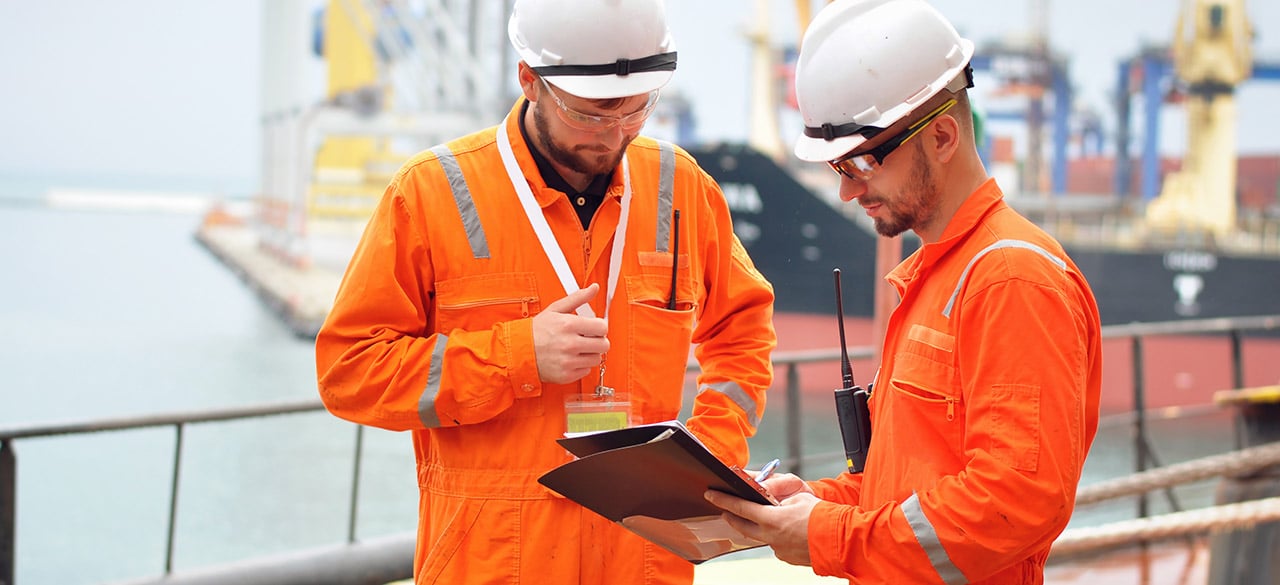Vetting inspections are essential for evaluating vessel quality, compliance, and operational procedures to verify conformity with standards and regulations. Despite technological advancements, human involvement remains crucial for conducting these inspections effectively. Well-trained crews are pivotal for ensuring safe and efficient maritime operations, as they can mitigate risks, prevent accidents, and respond promptly to emergencies.Thus, the SIRE 2.0 human element is the most important aspect during vetting inspections.
SIRE 2.0 highlights the importance of the human factor
SIRE 2.0 emphasizes the significance of the human element in vetting inspections, recognizing that crew competence greatly influences inspection efficiency and accuracy. Proper crew selection and training are vital to minimize errors and ensure overall quality and reliability.
As OCIMF states: “to ensure that human factors are always accounted for in the management and operation of vessel, OCIMF is including human factors considerations as a core element of the updated Ship Inspection Report Programme. By making human factors’ assessment fundamental to the inspection process, as an industry, we can systematically address the issues and latent conditions that influence errors, actions and decisions that cause risk or lead to harm” (OCIMF, 2021).
Investing in crew training enhances the vetting process and improves overall safety and reliability. Well-trained crews can handle emergencies, adhere to safety protocols, and navigate challenges effectively, contributing to a robust and resilient vetting system.
Pre-vetting inspections can help identify training needs
Pre-vetting inspections play a crucial role in identifying training needs within organizations. By evaluating individual performance, these inspections help pinpoint training gaps, enabling targeted interventions to enhance workforce effectiveness and skill upgrades. Consistent pre-vetting inspections enable organizations to address workforce training gaps, ensuring employee competence and organizational success.
They also help uphold compliance with industry standards and regulations, fostering a culture of continuous improvement and accountability. This proactive approach demonstrates a commitment to ethical business practices and ensures that the organization operates within legal boundaries cultivating a culture of continuous improvement and accountability and leading to sustained success in a competitive business landscape.
Training can lead the way
Training is essential for promoting safety in the maritime industry, instilling a proactive mindset among crew members and staff. It also drives continuous improvement and innovation, empowering individuals to adapt to change and implement cutting-edge solutions whilst promoting teamwork and coordination. By equipping personnel with the necessary skills to identify potential risks, mitigate hazards, and respond effectively to emergencies, accidents and operational disruptions are minimized.
Through scenario based exercises, simulations, and hand-on drills, individuals are better prepared to handle complex challenges and unforeseen circumstances with confidence and composure. Whether onboard a vessel or ashore in a port facility, effective training programs promote clear lines of communication, mutual support, and shared responsibility.
Empowering excellence
In conclusion, vetting inspections are crucial for ensuring vessel quality, safety, and compliance. Investing in crew training and conducting pre-vetting inspections enhance efficiency, mitigate risks, and uphold standards and sustainable growth in a changing global landscape. SQLearn supports organizations in navigating the complexities of vetting inspections in the evolving landscape of SIRE 2.0 to secure success. With our dedicated online course library and Vetti, our innovative software tailored for vetting inspections preparation, companies can streamline their operations, ensure compliance, and promote crew development effectively.
Article originally appeared on Maritime Economies Posidonia 2024 Special Edition
Also, we invite you to connect with us at Posidonia 2024 (booth 3.325/10). Join our conference «Navigating Vetting Inspections: How to Prepare, Perform & Succeed» on Wednesday, June 5, at Seminar Room 2B (16:45 – 18:30 EEST) as industry leaders will be sharing valuable insights on decoding the intricacies of vetting inspections and effectively integrating the human element in the SIRE 2.0 era to achieve the best results.






